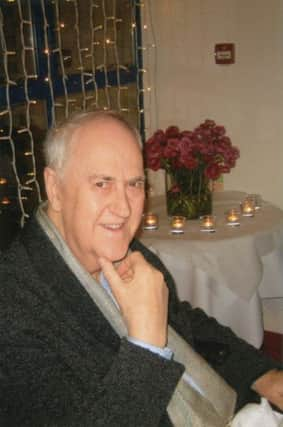Obituary: Richard Broke, television producer


Richard Broke was a television producer who brought to the small screen some compelling military dramas, both The Monocled Mutineer (1986) and Tumbledown (1988) causing considerable controversy. In particular, the former caused an outrage – led vociferously by Norman Tebbit – as it told of the exploits of Percy Toplis, who deserted in the First World War. Broke admitted there were “examples of dramatic licence incorporated into the script”. That incensed Tebbit, who claimed the drama (written by Alan Bleasdale and starring Paul McGann) was further evidence of a left-wing bias in the BBC.
Broke enjoyed many successes on television – most notably Winston Churchill: The Wilderness Years (1981) - starring Robert Hardy and Cold Comfort Farm (1995) with Ian McKellen, Rufus Sewell and Eileen Atkins. He brought to all such projects a keen eye for the drama and an ability to concentrate on the action without becoming sentimental.
Advertisement
Hide AdAdvertisement
Hide AdBroke’s career was all the more remarkable as he was confined to a wheelchair, having been involved in a car crash in his twenties. He refused to allow it to interfere with his progress round a studio or on outside broadcasts.
He was given lengthy treatment at Stoke Mandeville hospital and campaigned tirelessly for better wheelchair access in all public places.
Richard Broke attended Eton and, prior to his accident in 1970, worked at the Oxford Playhouse and with Lawrence Olivier at the Chichester Festival.
Broke became a trainee at the BBC before, in 1973, being given his first solo project as a producer of Centre Play. That was followed by a television series based on the Oresteia starring Diana Rigg.
Broke was then appointed first executive producer of Screen One for the BBC and was responsible for around 50 films over the next three decades.
He dramatised Martin Gilbert’s biography in Winston Churchill: The Wilderness Years and produced it for television. The series concentrated on the decade in Churchill’s life from 1929 when he was out of office. It won many awards and was acclaimed for the authenticity that Broke brought to the characters and the balanced atmosphere of the political arguments.
It was acknowledged as one of the best historical dramatisations and Hardy’s controlled playing of Churchill was masterly. “I’m still very proud of that,” he said. “It was a landmark for me.”
For Dr Fischer of Geneva in 1985 – Broke based his script on Graham Greene’s novel – Broke persuaded James Mason to play the sinister industrialist.
Advertisement
Hide AdAdvertisement
Hide AdThe controversy surrounding The Monocled Mutineer was harsh and furious. The central character, it transpired, had never been at Etaples, where the alleged mutiny had taken place. Accusations were made on both sides (one tabloid called it “a tissue of lies”) and the BBC eventually agreed that the series was “not a true life story”.
For his part, Broke weathered the storm with a calm resolve. “The government juggernaut was gunning for the BBC,” he said, “when The Monocled Mutineer was on the zebra crossing.” The fact that the series made for excellent drama was rather overlooked.
His next project, Tumbledown, proved no less controversial and was a subject deeply personal for Broke. The film, directed by Sir Richard Eyre, focused on the experiences of Robert Lawrence MC (played by Colin Firth), an officer in the Scots Guards, during the Falklands conflict of 1982.
While fighting at the Battle of Tumbledown, Lawrence was severely wounded in the head and left partly paralysed. The crux of the drama was Lawrence’s coming to terms with his incapacities and adjusting to civilian life.
Broke did not avoid the political issues and the drama developed the alleged indifference of politicians to administer to traumatised soldiers. Broke’s production subtly juxtaposed Lawrence’s devotion to the Army with his bitterness as he learns to accept a new lifestyle. The film won many awards. In 1992 Broke teamed up with the director John Schlesinger for the award-winning A Question of Attribution, an adaptation of Alan Bennett’s play detailing the downfall of the traitor Sir Anthony Blunt.
James Fox delivered an outstanding performance as the aloof Blunt and Prunella Scales was a sharp and knowing Queen. Broke allowed the camera to highlight Bennett’s suggestion that the Queen was aware of Blunt’s treachery.
Broke was an active member of his local church in Chiswick, west London. He was an enthusiastic supporter of their “hymnathon” two years ago when, in order to raise money for the somewhat dilapidated organ the choir and the congregation sang the entire 542 hymns in the New English Hymnal overnight. “In fact,” Broke blogged, “we cannot know who will crack first in this wonderful, slightly crazy venture – the choir or the organ.”
He is survived by his wife, Elaine, whom he married in 1989, and their two daughters.
ALASDAIR STEVEN